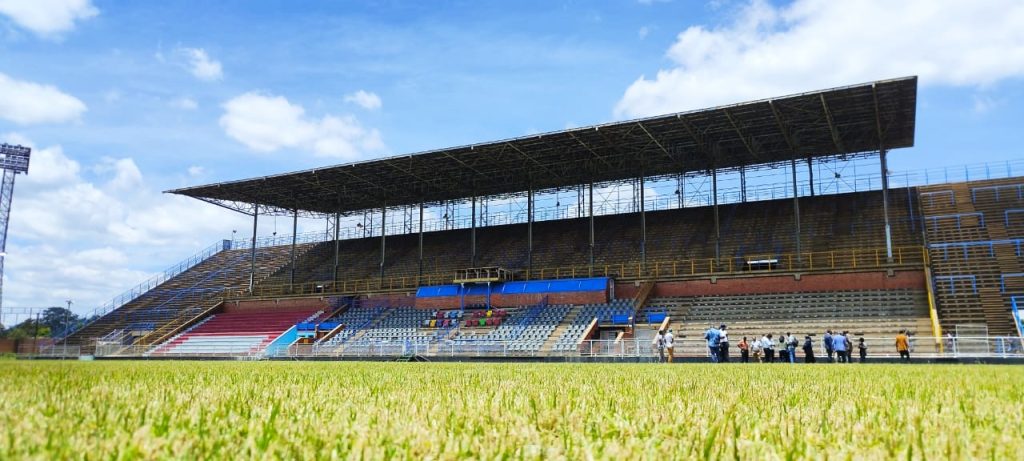By DT Correspondent
Zimbabwe’s dream of improved sports infrastructure has hit a snag, with Minister of Sport, Kirsty Coventry, blaming “turf wars” between her ministry and local councils.
Coventry accused councils of hindering progress, citing their lack of cooperation as the main culprit.
The issue stems from dilapidated sports facilities that have relegated Zimbabwe’s status on the international stage with athletes and federations pleading for upgrades.
Ownership and responsibility for some facilities are however unclear, leading to finger-pointing and stalled projects.
“We need help,” Coventry told the Parliamentary Portfolio Committee last week.
“Some areas fall under councils, and we don’t have a good relationship. There’s always turf wars – ‘this is mine, we don’t want you here.'”
Asi we must give a lots of credit to Harare Mayor @JMafume for giving his best shot on Rufaro Stadium salvage job. Hope it passes the inspection today.
— Bla B (@bmusonza) February 10, 2024
For me the long-term plan should be a complete destruction of the current structure and rebuilding a new stadium. pic.twitter.com/UZR4s4e1lC
This lack of cooperation has manifested in several failed projects.
Prophet Magaya’s attempts to lease and renovate Chibuku and Gwanzura stadiums were rejected by councils. Similarly, Sakunda Holdings’ proposal for Rufaro stadium faced resistance.
Even the National Sports Stadium, facing condemnation from continental football motherbody CAF, remains untouched despite a ZW$24 billion budget allocation. This raises concerns about the broader infrastructure development plan.
The consequences are dire; athletes lack proper training grounds, hindering their potential, Zimbabwe struggles to host international events, and citizens continue to question the effectiveness of government spending.
Coventry urged Parliament to help bridge the gap she said was keeping Zimbabwe in the existing camatose state.
“We rely on them to build this relationship,” she said, emphasizing the need for clear ownership, communication, and alternative funding models like public-private partnerships.





